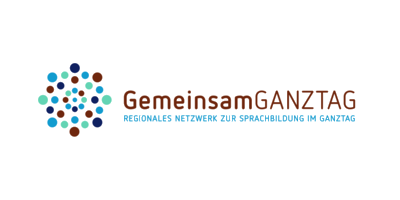GemeinsamGANZTAG. A regional network for language education in all-day schools
GemeinsamGANZTAG. A regional network for language education in all-day schools is a research project which is conducted by the Institute for Research on Education and School Development and the RAG Foundation in co-operation with the Ministry for Schools and Education of the Federal State of North Rhine-Westphalia. The project aims at supporting and promoting underprivileged students at schools in challenging circumstances in former mining areas by providing educational opportunities in the domains of language learning and self-regulation. GemeinsamGANZTAG is conducted jointly with research partners from TU Dortmund University as well as from the Universities of Bochum, Duisburg-Essen and Wuppertal.
Funding

Project description
The research project GemeinsamGANZTAG aims at supporting and promoting underprivileged students at all-day schools in challenging circumstances by focusing on language competencies and competencies of self-regulated learning as vantage points to foster these students and by developing and establishing a regional system of support.

The project addresses several levels of educational processes and governance: In the schools, the project aims at adapting and installing innovative concepts for learning and instruction to foster German language competencies and self-regulated learning. To do so the project partners develop and apply four modules for systematic interventions which complement each other thematically: (1) Interactive language education to foster reading and conversation skills; (2) Language of science instruction – Concepts for teaching and materials for subject-specific language promotion; (3) Self-regulated and co-operative learning – Fostering experience of competence through systems of peer tutoring in German language education; (4) Self-regulated learning – Time uses for open learning in German language education. On the regional level of the project, GemeinsamGANZTAG focuses on establishing and expanding regional networks to promote the configuration of educational opportunities at all-day schools and aims at developing a successful structure for supporting these networks.
The four educational interventions in the schools will be conducted with students beginning in Grade 5. These interventions will be supplemented with accompanying scientific research in the form of standardized monitoring which will be conducted by IFS. This monitoring comprises, in a pre-post design with points of measurement at the beginning of Grade 5 and in mid-Grade 6, tests in competencies such as reading which are of high relevance for evaluating outcomes of the interventions. In addition, questionnaires for the students and their parents as well as for teachers and principals are used to survey individual characteristics as well as aspects of instruction and schooling. This data should serve to contextualize the results of the interventions and to enrich these findings by adding knowledge on the individual and structural conditions of education in these schools. With this, the data should also allow exploring factors which might serve as possible vantage points for reducing the risk of educational poverty which for the group of underprivileged students is considerable. The accompanying scientific research additionally surveys conditions of successful transfers and implementations of innovations in the participating schools (and beyond those) from multiple perspectives. To address these issues, interviews with relevant stakeholders on several levels of educational governance are conducted.
Lead researcher at IFS
Project management
- PD Dr. Hanna Pfänder
Project team
- Martin Goy
- Hans Falko Schumpich
- Inga Wehe
External project partners
- Prof. Dr. Silvia-Iris Beutel (Technische Universität Dortmund)
- Prof. Dr. Hendrik Härtig (Universität Duisburg-Essen)
- Prof. Dr. Vivien Heller (Bergische Universität Wuppertal)
- Prof. Dr. Detlev Leutner (Universität Duisburg-Essen)
- Prof. Dr. Miriam Morek (Universität Duisburg-Essen)
- Prof. Dr. Joachim Wirth (Ruhr-Universität Bochum)





![[Translate to English:] [Translate to English:]](/storages/ifs-ep/_processed_/8/5/csm_AdobeStock_412860748_9a2dbb816c.jpeg)
